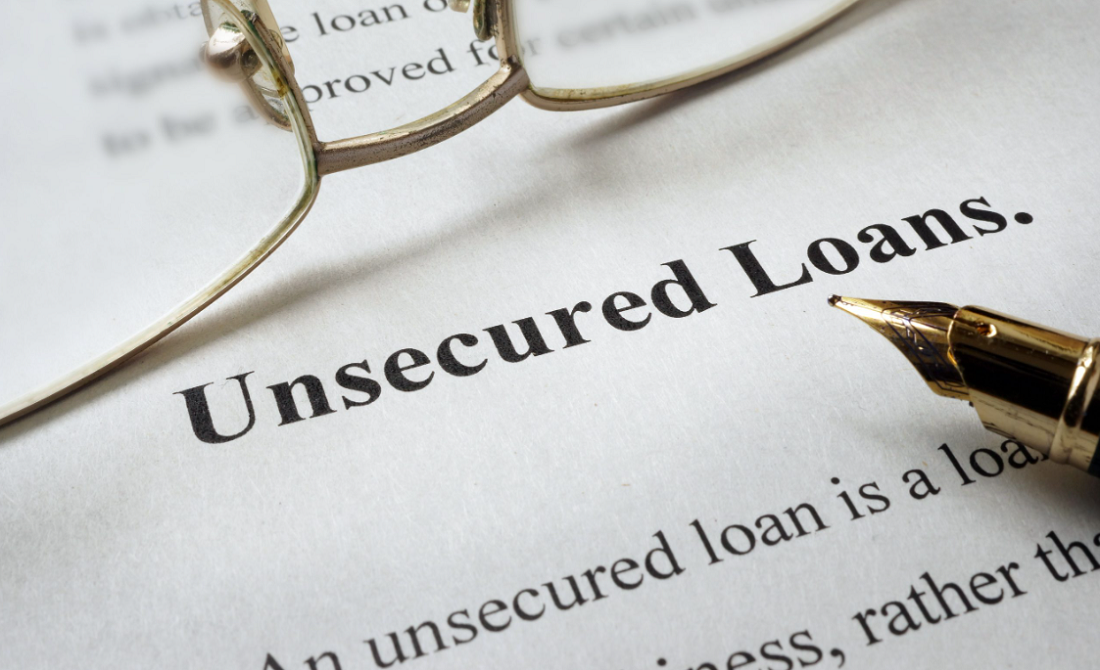Unsecured Loans: What They Are And How They Work
Loans that are approved without collateral are known as unsecured loans. In the event of default, the lender has few options other than filing a lawsuit to collect payment. Unsecured loans don’t require collateral and do not require a security deposit. In an unsecured loan, borrowers do not have to pledge assets; instead, their credit history and income are considered rather than assets. Borrowers who default on unsecured loans do not have the right to take their physical assets, such as their home or car, if they stop paying.
How do unsecured loans work?
Secured loans require collateral, but unsecured loans do not. Therefore, lenders evaluate your credit score instead of your collateral when considering your Mortgage Processing. Generally, unsecured loans require a fairly extensive application. The lender will review your credit report, income, and any present monthly payments you have. The lender will evaluate your current financial picture before determining if they can offer you an unsecured loan.
If your application for an unsecured loan has been approved, you will receive details of the loan offer from the lender. It is important to emphasize that the principal, or amount borrowed, is your goal. Ensure you pay attention to your unsecured loan’s interest and annual percentage rates. Unsecured loans typically don’t offer direct Employee Tax Deductions, the loan’s purpose might qualify for deductions under specific categories like education or medical expenses. Comparing quotes from multiple lenders may be necessary to obtain a competitive rate. Take your budget into account when determining the monthly payment. Would you be comfortable making this payment each month?
A borrower should remember that an unsecured loan ultimately doesn’t come without risk. While defaulting on an unsecured loan will not result in the loss of your assets, it could significantly impact your credit score. Having a low credit score makes it harder to get all kinds of loans. However, if you manage to get approved for another loan even with a lower credit score, you may have to pay higher interest rates on that debt, which could cost you thousands in the long run. So, before you apply for a loan, ensure you can repay it on time.
Types of unsecured loans
The purpose of unsecured loans may differ from one lender to the next, such as home improvement loans or wedding loans, but they share many characteristics. You can take out a loan after checking your personal loan eligibility criteria from a bank, credit union, or online lender and use it as you see fit.
- Loans that will help you better your financial situation
Loans for home improvements and debt reduction might help you achieve your financial goals. For example, you can use a home improvement loan to improve your home, which will boost its worth. In addition, a low-interest debt consolidation loan can be a less expensive alternative to paying down existing debt. The Central KYC Registry streamlines identity verification for unsecured loans, potentially reducing application burdens and improving access to credit.
- Loans for non-essential expenses
Experts often advise saving for non-essential costs such as vacations. If you need to finance this expense, a personal loan may be better than a credit card. Compare all of your possibilities and only take out a loan for these purposes if it is the most affordable.
- Loans for unanticipated costs
Unsecured loans should only be used as a last resort for emergencies and medical expenditures. You probably have cheaper options in an emergency, such as a medical payment plan or a local resource. However, if you require a loan quickly, seek a lender that offers quick funding, low rates, and low costs.
Must Read: what is home loan and its benefit and features
Eligibility criteria
Before googling “how to apply for personal loan”, it is good to check eligibility requirements.
- Credit score
Credit scores are a significant factor for many lenders when determining loan approvals. You have access to the lowest interest rates and the most effective loan amounts with a good credit score. Conversely, those with a bad credit score will likely have higher interest rates. Additionally, lenders look at how long you have had a credit history. Unsecured Loans can offer quick funding for CFD Trading in Singapore, the high risks associated with CFDs. Most lenders require borrowers to have a credit history of at least two years, and the longer, the better.
- Debt-to-income ratio
Depending on your debt-to-income ratio – your monthly debt payments as a percentage of your monthly income – lenders determine how heavily you are burdened with debt. Having too much debt may signal to a lender that there is a high risk that you won’t be able to pay back the loan. As a result, many lenders prefer borrowers with a debt-to-income ratio of below 40%.
- Bank account transactions
Some lenders look at your bank account to know how much money you bring in and how much money you spend. In this way, lenders can gauge how much you can afford for monthly loan payments.
Conclusion
If you have a good credit score and a hefty bill, unsecured loans may be suitable. Because of your good credit, you’ll be able to get a reduced interest rate on an unsecured loan, making it more reasonable. On the other hand, an unsecured loan may not be as advantageous if you have a low credit score. Keeping up with your monthly payments may be more challenging if your interest rate is greater. In addition, your credit score might be severely harmed if you miss even one payment. Therefore, if you have bad credit, you should stick to secured loans for the time being.

